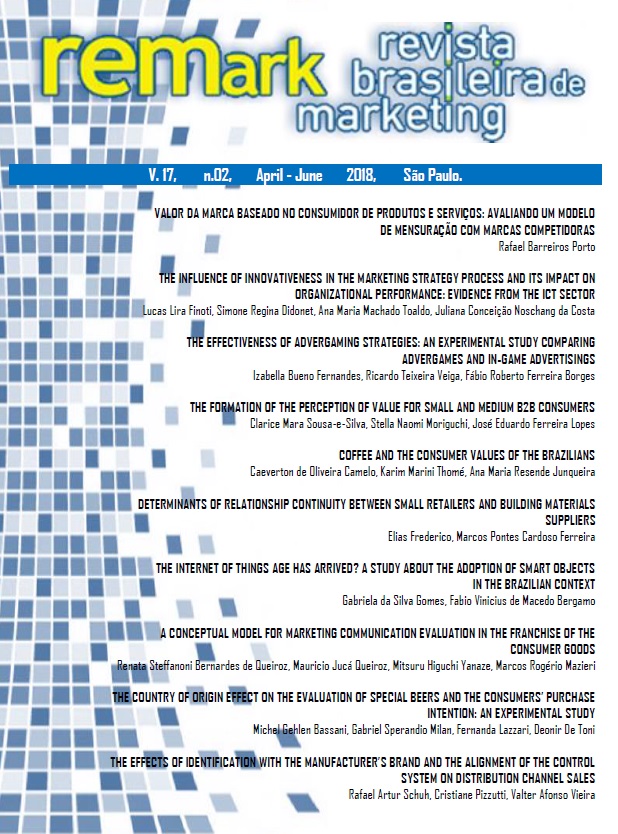A Conceptual Model for Marketing Communication Evaluation on the Franchise of the Consumer Goods
DOI:
https://doi.org/10.5585/remark.v17i2.3978Keywords:
Marketing, Integrated Marketing Communication, Evaluation of Communication, Franchise.Abstract
Objective: Analyze the relationship between integrated marketing communication and its advantages for companies with differentiation strategy via franchising process.
Method: Qualitative, two case.
Relevance: The measurement of economic-financial returns, such as sales increase and revenue tendency remains relevant in the literature on marketing communication, however, the indicators considered medium and long term, based, for example, on the incremental return that customers current and prospective will bring to the company or depths of feedback obtained by the Client Lifetime Value are still not well understood in the context of companies that differentiate themselves through franchises.
Results: Three dimensions were defined for the planning of the integrated marketing communication, being the size of the customer, the franchisor and the franchisee, separating the elements of each dimension and discussing the implications for the increase of marketing communication ROI.
Theoretical contributions: The work contributes to the theory of customer equity, especially about marketing communication and the measurement of returns on investments, as it presents a conceptual model that supports integrated communication.
Management Contributions: Present the proposal of how to integrate the information for planning the integrated marketing communication, involving franchisees, customers and franchises.








